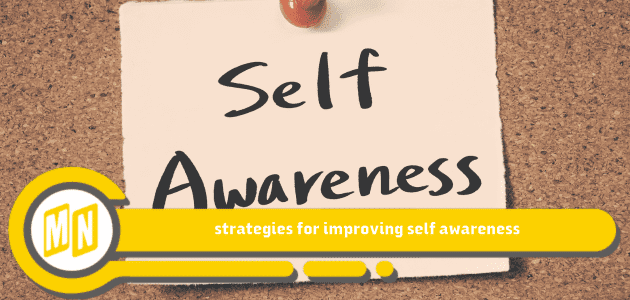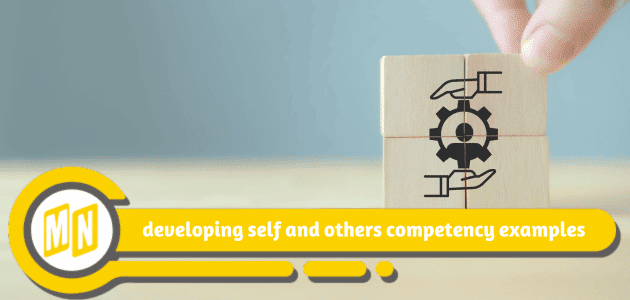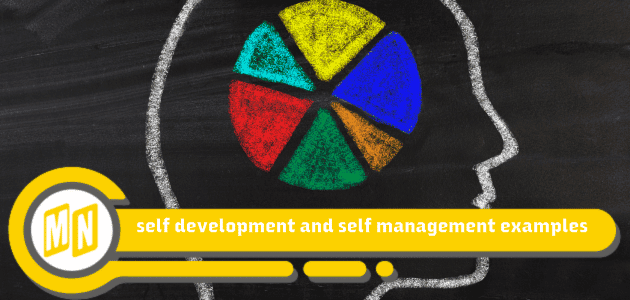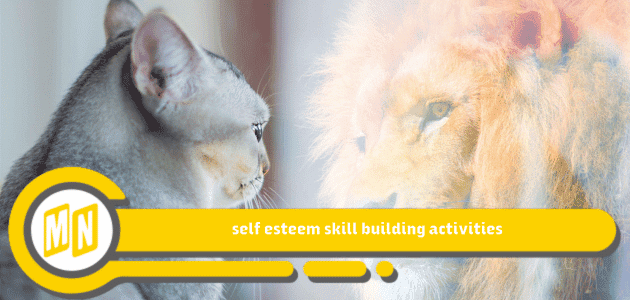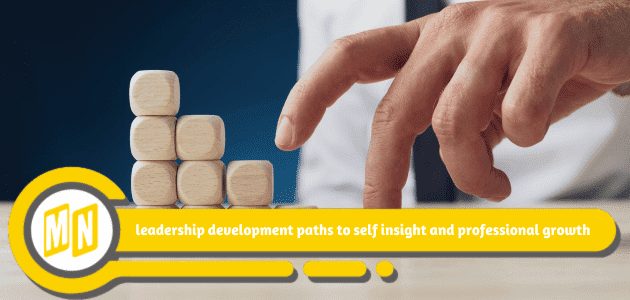strategies for improving self awareness: Here’s what matters to you, Self-awareness is a crucial aspect of personal development and growth. In today’s fast-paced world, we often lose sight of our thoughts, emotions, and actions, leading to a disconnection from our true selves. Improving self-awareness can help us understand our strengths and weaknesses, make better decisions, and foster healthier relationships. In this blog post, we will delve into various strategies for improving self-awareness, offering practical tips for self-reflection, understanding emotions, and fostering personal growth. By mastering self-awareness, we can gain valuable personal insights that enhance our overall well-being and success in life.
Contents
- 1 Understanding the Importance of Self-Awareness
- 2 Strategies for Improving Self-Awareness
- 3 Practical Steps to Enhance Self-Awareness
- 4 Journaling as a Tool for Self-Reflection
- 5 Mindfulness Practices for Greater Self-Awareness
- 6 Seeking Feedback to Gain Insights
- 7 Developing Emotional Intelligence
- 8 Setting Personal Goals for Self-Discovery
- 9 Cultivating a Habit of Self-Assessment
- 10 Learning from Mistakes and Challenges
- 11 Incorporating Self-Care into Your Routine
Understanding the Importance of Self-Awareness
Practicing self-awareness means taking a deeper look at your emotions to understand why you feel a certain way and how those sentiments could shape your reactions. This insight enables you to respond more effectively to situations or individuals that might normally trigger you, a particularly valuable skill for leaders. With a clearer understanding of your strengths and areas needing improvement, you become more productive and work more confidently. Additionally, self-awareness fosters better decision-making and healthier relationships, ultimately enhancing your overall well-being and success. As you cultivate self-awareness, you gain personal insights that can significantly improve various aspects of your life.
Strategies for Improving Self-Awareness
Embracing self-awareness requires deliberate and consistent effort. One effective strategy is to practice mindfulness meditation, which helps you stay present and in tune with your emotions. Keeping a daily journal can also be beneficial, as it allows for regular reflection on your experiences and feelings. Seeking feedback from others provides valuable insights that you might not see yourself. Furthermore, clarifying your personal values helps in aligning your actions with your true self. Reading fiction broadens your perspective, while practicing gratitude fosters a positive mindset. By examining knee-jerk emotional reactions, you gain control over impulsive behaviors. With these strategies, you can significantly enhance your self-awareness.
See also: leadership development paths to self insight and professional
Practical Steps to Enhance Self-Awareness
To improve self-awareness, start by keeping a daily journal to track your thoughts and emotions. This practice helps in identifying patterns and gaining insights into your behavior. Engaging in mindfulness meditation can also enhance your ability to stay present and manage your reactions. Another effective step is to actively seek feedback from friends or colleagues, as they can offer perspectives that you might not see yourself. Reflecting on your core values and how they align with your actions will further deepen your self-understanding. Finally, regularly assess your strengths and weaknesses, aiming to harness your capabilities and work on areas needing improvement.
Journaling as a Tool for Self-Reflection
Journaling is a powerful tool for enhancing self-awareness. It allows individuals to explore their inner thoughts, emotions, and experiences, promoting a deeper understanding of themselves. By writing regularly, they can identify patterns, track personal growth, and gain insights into their behaviors and motivations. Revisiting past entries offers a unique opportunity to observe how they have evolved over time, helping to recognize achievements and pinpoint areas that need attention. This reflective practice not only boosts confidence and self-acceptance but also aids in setting and achieving personal goals, thus contributing significantly to overall well-being.
Mindfulness Practices for Greater Self-Awareness
Mindfulness is a cornerstone for developing greater self-awareness. Practices such as meditation, deep breathing exercises, and mindful walking help individuals tune into their present moment experiences. By focusing on the here and now, one can better understand their thoughts, emotions, and reactions. The Muse app offers guided meditations specifically designed to enhance mindfulness and cultivate self-awareness. Engaging in daily mindfulness practices can foster patience, compassion, and non-judgment, making it easier to understand and accept oneself. Over time, these practices can lead to profound personal insights and a more harmonious inner life, paving the way for continuous self-growth and emotional balance.
See also: examples of specialist knowledge expertise and self development
Seeking Feedback to Gain Insights
Seeking feedback from others is a powerful strategy to gain insights into one’s behavior, strengths, and areas for improvement. By actively asking for input from colleagues, friends, or mentors, individuals can uncover blind spots and gain a clearer understanding of how they are perceived. This exchange fosters personal growth and development, as constructive criticism and praise can be used to refine and enhance self-awareness. It’s essential to approach feedback with an open mind and willingness to learn. Tools such as 360-degree feedback assessments and regular one-on-one meetings can be effective in integrating feedback into personal development plans.
Developing Emotional Intelligence
Developing emotional intelligence is a crucial aspect of improving self-awareness. It involves being mindful of your emotions and how they affect your thoughts and behaviors. By practicing mindfulness and meditation, you can better understand your emotional responses. Paying attention to your emotions and reflecting on your experiences can help you identify patterns and triggers. Furthermore, learning to regulate your emotions in various situations enhances your ability to interact positively with others. Pursuing your passions and setting personal goals also contribute to emotional intelligence, as they encourage self-reflection and personal growth. Ultimately, emotional intelligence fosters better relationships and improves overall well-being.
Setting Personal Goals for Self-Discovery
Setting personal goals is not only about achieving milestones but also about embarking on a journey of self-discovery. By defining clear, attainable goals, individuals gain deeper insights into their strengths, weaknesses, passions, and values. This process encourages self-reflection and continuous personal growth. Goals should be specific and measurable, providing a clear direction and purpose. Regularly reviewing and adjusting these goals ensures they remain aligned with one’s evolving self-awareness. Additionally, celebrating small victories along the way fosters motivation and confidence. Ultimately, setting personal goals serves as a roadmap, guiding individuals toward a more profound understanding of themselves and a more fulfilling life.
Cultivating a Habit of Self-Assessment
Self-assessment is a fundamental practice for anyone aiming to improve self-awareness and personal growth. By regularly evaluating our thoughts, behaviors, and emotional responses, we gain valuable insights into our true selves. Start by setting aside time each day or week for reflection, perhaps through journaling or mindfulness meditation. It’s also beneficial to seek feedback from trusted friends or colleagues to gain perspective on areas we might overlook. Tools like self-assessment tests can provide structured insights and identify patterns in our behavior. Engaging in creative activities allows for self-expression, further illuminating aspects of our personality. Cultivating this habit transforms self-awareness from an abstract concept into a tangible, ongoing practice.
Learning from Mistakes and Challenges
Mistakes and challenges are integral to the journey of personal growth and developing self-awareness. Embracing failures allows individuals to identify areas that need improvement, fostering a growth mindset. Each stumble provides insights into one’s strengths and weaknesses, guiding more informed decisions in the future. Reflecting on these experiences through practices like journaling or seeking feedback helps internalize lessons learned, transforming errors into valuable learning opportunities. By viewing mistakes as stepping stones rather than setbacks, individuals can cultivate resilience and perseverance, ultimately achieving greater self-awareness and success. This mindset shift can lead to profound personal development and the realization of one’s full potential.
Incorporating Self-Care into Your Routine
Incorporating self-care into your daily routine is essential for maintaining overall well-being and enhancing self-awareness. Start with simple changes, such as integrating exercise routines to boost physical health and maintaining a balanced diet to fuel your body. Prioritize adequate sleep to rejuvenate your mind and body. Regular mindfulness and meditation practices can help manage stress and improve emotional health. Journaling daily reflections creates a space for personal insight and growth. Additionally, setting healthy boundaries and making time to connect with loved ones can nurture emotional support systems. Remember, seeking professional support when needed is a vital part of self-care.

